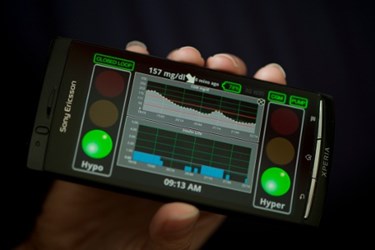Largest Ever Artificial Pancreas Clinical Trials To Begin This Year

An artificial pancreas device system (APDS) developed by researchers at the University of Virginia (UVA) Medical School is set to kick off two large-scale clinical trials to investigate long-term, real-life use of the device in patients with Type 1 diabetes. If the trials achieve favorable results, the technology could be the first of its kind to achieve regulatory approval in the U.S.
APDS systems are a combination of two devices already used by patients with diabetes: continuous glucose monitors (CGMs) and insulin infusion pumps. These devices — while revolutionary for diabetes patients worldwide — still require a fair amount of interaction by the patient and regular glucose monitoring throughout the day. APDS systems use computer-controlled algorithms to “close the loop” and make the systems more autonomous.
Boris Kovatchev, director of the UVA Center for Diabetes Technology, is the principle investigator of a $12.7 million competitive National Institute of Health (NIH) grant that will fund two separate clinical trials of the device over the next four years.
“To be ultimately successful as an optimal treatment for diabetes, the artificial pancreas needs to prove its safety and efficacy in long-term pivotal trials in the patient’s natural environment,” said Kovatchev, in a press release.
The first clinical trial will enroll 240 patients at nine study sites in the U.S. and Europe, including Harvard University, Mount Sinai, the Mayo Clinic, University of Colorado, Stanford University, University of Montpellier (France), the University of Padova (Italy), and the Academic Medical Center at the University of Amsterdam (Netherlands). Researchers will investigate the safety and efficacy of the UVA technology as trial participants go about their daily routines for six months.
Of the 240 participants in the first trial, 180 will participate in a second trial, centered at Harvard University. By using a different algorithm, researchers hope to determine how much insulin to deliver, how often, and when.
Francis Doyle, co-principle investigator from Harvard University, told the Richmond Times-Dispatch, “Day to day, hour to hour, the various stresses that impact the human body change the way it responds to insulin controlling glucose. Physical stresses, anxiety, hormonal swings will all change that balance. To be able to control for those factors, we need to see longer intervals of data. This is the first trial where we’ll be looking at the multi-month intervals of time.”
The American Diabetes Association estimates that 1.25 million American adults and children are living with Type 1 diabetes. While APDS systems are not a cure for Type 1 diabetes, the technology is expected to greatly impact the patient’s quality of life.
“Our foremost goal is to establish a new diabetes treatment paradigm,” said Kovatchev. “The artificial pancreas is not a single-function device; it is an adaptable, wearable network surrounding the patient in a digital treatment ecosystem.”
Several international giants in med tech — including Medtronic and Johnson & Johnson — are working on their own versions of an APDS. According to Kovatchev, the UVA technology — licensed by Type Zero Technologies, a startup company in Charlottesville, VA — is the most mature and most tested.
